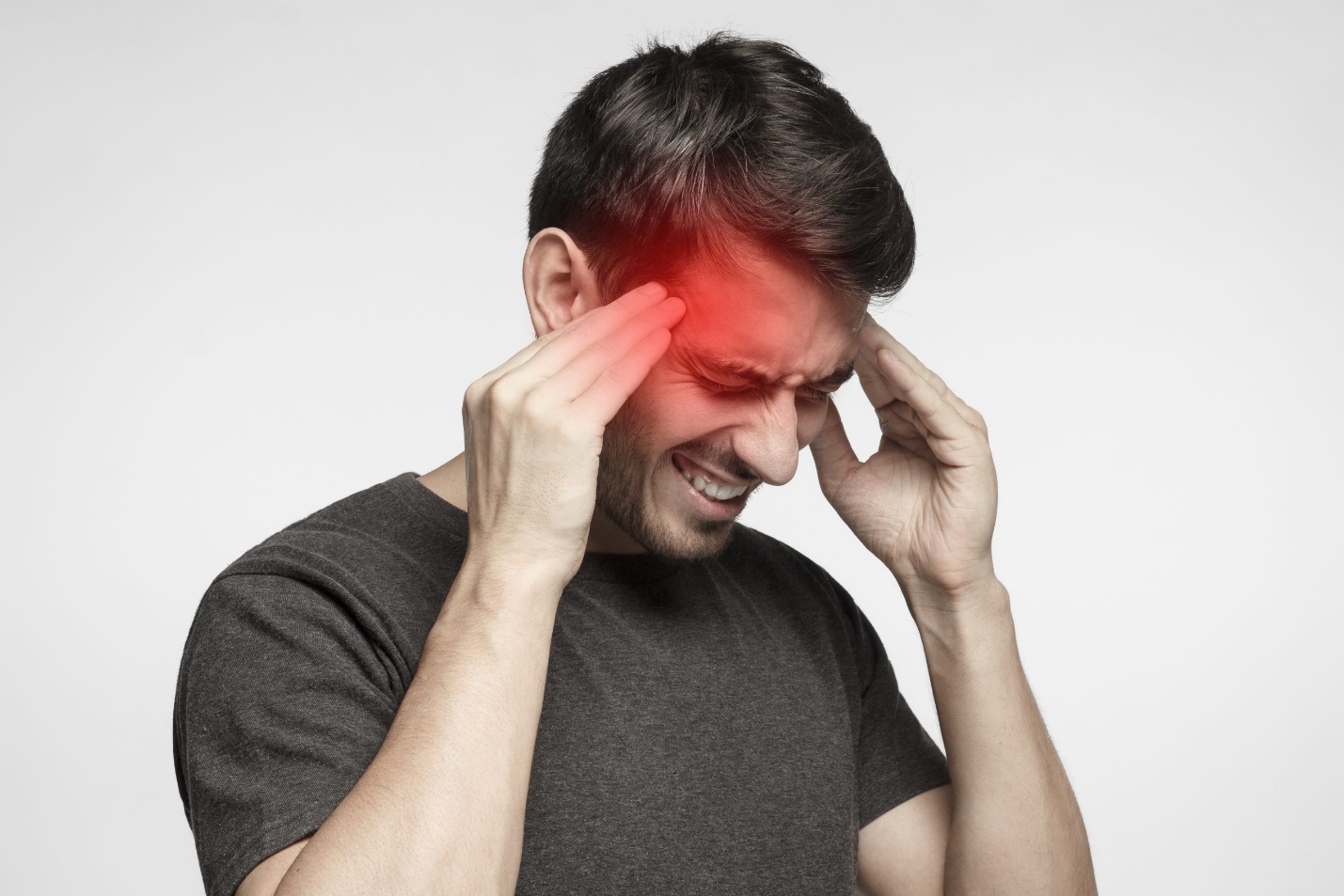1. Pain relievers for headaches
1. Over-the-counter pain relievers
Over-the-counter pain relievers Often the first-line treatment for headaches, this includes acetaminophen and NSAIDs (non-steroidal anti-inflammatory drugs).
Acetaminophen
Effects: Acetaminophen (paracetamol) is a non-opioid antipyretic and analgesic. It is the most common pain reliever for treating mild to moderate headaches.
Side effects: Acetaminophen has few side effects and can be considered the safest pain reliever. However, it should not be used in excessive doses or for prolonged periods, as it can cause liver damage.
NSAID pain relievers and anti-inflammatory drugs
Effects: NSAIDs help reduce pain, inflammation, and fever, making them quite effective in treating headaches. These include aspirin, ibuprofen, naproxen, and others.
Side effects: The medication may cause gastrointestinal bleeding, nausea, stomach pain, tinnitus, and hearing loss.
Note:
- Do not give aspirin to children under 16 years of age unless directed by a doctor. Aspirin can cause Reye's syndrome in children...
- Pregnant women and children under 3 months old should not use ibuprofen.
- Do not use naproxen if you are pregnant, breastfeeding, or trying to conceive.

Headaches are a common condition affecting people of all ages and genders.
Additionally, combination medications can be used to treat headaches. These medications are more effective than single-ingredient pain relievers. Currently, many combination medications are available without a prescription. Combination medications include aspirin, acetaminophen (paracetamol, Tylenol, etc.), or both, often combined with caffeine or a sedative.
1.2. Prescription pain relievers
- Triptan group of drugs: This group includes sumatriptan, rizatriptan, naratriptan, zolmitriptan, almotriptan, eletriptan, etc.
Effects: Triptan drugs can effectively reduce migraine and tension headaches.
Side effects: The drug may cause some cardiovascular side effects; therefore, caution should be exercised when using it in patients with ischemic heart disease, a history of myocardial infarction, uncontrolled hypertension, liver dysfunction, pregnancy, and breastfeeding. Caution should also be exercised when used concurrently with serotonin reuptake inhibitor (SSRI) antidepressants...

You should consult with your doctor to find the appropriate treatment for your headache.
- Opioid drugs
Uses: Prescription opioid medications are used to treat moderate to severe headaches when other headache medications are ineffective.
Opioid drugs include: oxycodone, codeine, tramadol...
Side effects: This medication can be addictive, therefore it is necessary to adhere strictly to the prescribed dosage and duration of use.
2. Medications for preventing headaches
Some preventative medication may be needed if you experience frequent headaches that do not improve with painkillers and other therapies.
2.1. Tricyclic antidepressants
Effects: Tricyclic antidepressants are the most commonly used type of medication to prevent headaches in some cases. Commonly used medications include amitriptyline, nortriptyline, and protriptyline.
Alternatively, selective serotonin reuptake inhibitors (SSRIs) such as venlafaxine and mirtazapine can be used to prevent headaches.
Side effects: These medications can cause side effects such as constipation, drowsiness, and dry mouth.
2.2. Muscle relaxants
Effect: Muscle relaxants reduce muscle tension, which can cause headaches. Therefore, they are also used to prevent headaches, commonly tizanidine...
Side effects: The medication may cause drowsiness, low blood pressure, weakness, dry mouth, dizziness, fatigue, abdominal pain, diarrhea, etc.
2.3. Anticonvulsant drugs
Effect: Anticonvulsant medications can help prevent tension headaches. Some anticonvulsants prescribed to prevent headaches include gabapentin (Gralise, Horizant, Neurontin) and topiramate (Topamax, Qsymia, and others).
Side effects: The medication may cause drowsiness, dizziness, etc.
Note that medication often takes a long time to take effect. The use of preventative headache medication needs to be closely monitored to avoid overuse of painkillers, which could affect the effectiveness of preventative medication.
3. Precautions when using the medication
To use headache medication effectively and safely, and to avoid side effects, you need to follow these guidelines:
- Do not take medication without a doctor's prescription.
- Strictly follow medication instructions and avoid drug abuse.
- Use caution when administering this medication to children.
- If you experience any unusual symptoms while taking this medication, report them immediately to your doctor so that appropriate action can be taken.
Dr. Hoang Van
Source: https://giadinh.suckhoedoisong.vn/thuoc-nao-dieu-tri-dau-dau-17224092315381627.htm








![[Photo] The General Secretary presents the title of Hero of the People's Armed Forces to the Navy.](https://vphoto.vietnam.vn/thumb/1200x675/vietnam/resource/IMAGE/2026/02/28/1772251730336_vna-potal-tong-bi-thu-to-lam-du-va-trao-danh-hieu-anh-hung-llvt-nhan-dan-cho-quan-chung-hai-quan-8612073-jpg.webp)





























































































Comment (0)